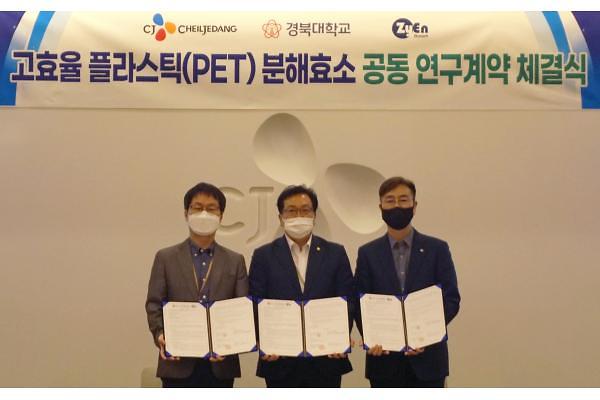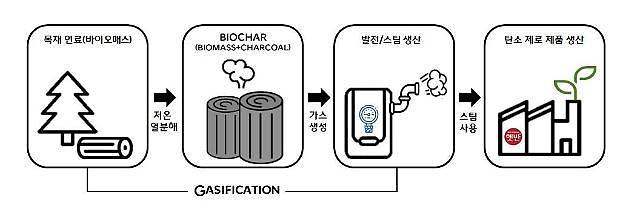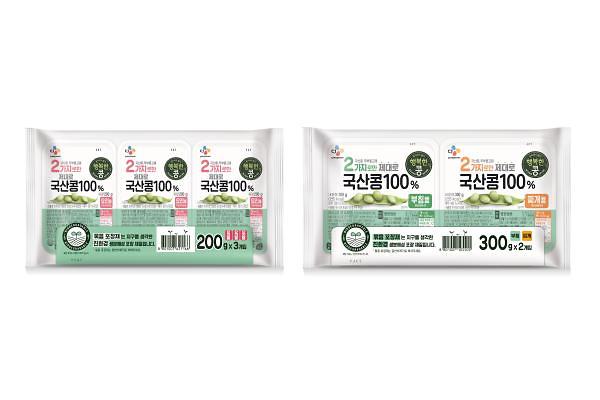
[Courtesy of CJ Cheil Jedang]
CJ CheilJedang said it has signed a joint research contract with Kyungpook National University to commercialize enzymes that biologically decompose polyethylene terephthalate (PET) plastics They would also develop plastic decomposition and raw material purification processes.
Mechanical recycling is widely used to recover plastic waste by sorting, washing, drying, grinding, re-granulating and compounding without changing the chemical structure of raw materials. The method is inexpensive, but the quality of recycled materials is poor. Chemical recycling produces substances, but it is not a perfect alternative to solve the accumulation of plastic waste.
CJ CheilJedang promotes biological plastic recycling that consumes relatively little energy. The company's microbial fermentation technology and development infrastructure will be combined with Kyungpook National University's research know-how in plastic degradation enzymes to create synergies.
"This collaboration is a meaningful first step in transforming the plastic recycling paradigm into a greener and more sustainable direction," CJ CheilJedang's bio business CEO Hwang Yun-il said in a statement on June 16.
CJ Cheil Jedang has already developed polyhydroxyalkanoates (PHAs), which are produced by bacteria during the fermentation process of sugar or lipids including fats, oils and waxes to store carbon and energy, and can be used with other monomers to create different types of bioplastics that break down over time. PHAs are 100 percent biodegradable even in seawater.
In April 2021, CJ Cheil Jedang tied up with SKC, a polyester film and chemical material manufacturer, to produce a flexible and durable bioplastic material that g is good for food packaging by utilizing the characteristics of polylactic acid (PLA) and PHAs. PLA is a biodegradable thermoplastic polyester obtained by the synthesis of lactic acid, which can be produced from renewable resources.
Copyright ⓒ Aju Press All rights reserved.



